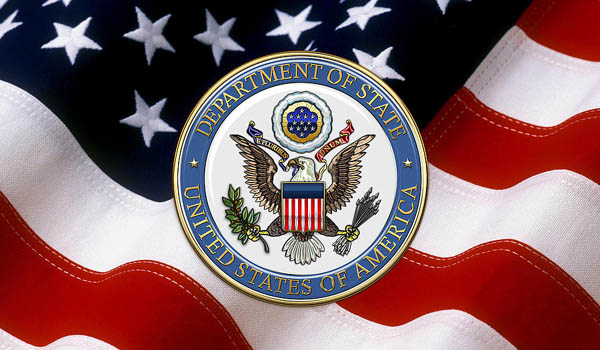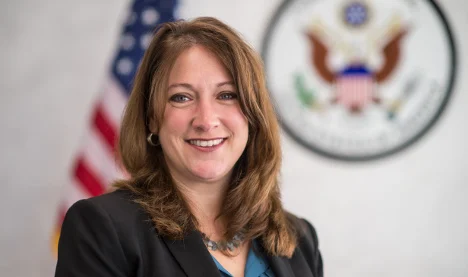A senior US official affirmed that the United States supports Shingal (Sinjar) agreement and works closely with the Iraqi federal government in Baghdad and the Kurdistan Regional Government KRG in Erbil.
Jennifer Gavito, Deputy Assistant Secretary DAS of State for Iraq and Iran, in a special briefing via phone from Washington attended by KirkukNow, addressed U.S.-Iraq relations and US vision for the bilateral relationship following government formation.
“We stand behind the Sinjar agreement and have worked closely with governments in both locations to make progress on that. And frankly, we’ve been disappointed that on some key issues such as security and administration, we still have a long way to go,” said DAS Gavito, about the minorities in Iraq.
“The U.S. over the course of years has provided significant amounts of support. This has been a key priority to both protect minorities in Iraq and also ensure that they are able to return to their homes,” Gavito added.
Shingal, located 120 west of Mosul, center of Ninewa province, on the border of Iraq-Syria, is home to the Ezidi religious community considered infidels by the extremist militants of the Islamic State in Iraq and Syria ISIS and part of the disputed territories between Baghdad and Erbil.
ISIS took large swathes of Iraq in 2014 and committed atrocities against ethnic and religious minorities in the disputed territories of Kirkuk, Ninewa, DIyala and Salahaddin mounted to genocide according to the United Nations and parliaments of Several European countries.
According to the Shingal agreement concluded between the Iraqi federal government and the Kurdistan Regional Government KRG in October 2020 to reorganize the administrative, security and service file in the Shingal district, the local police, the intelligence service and the National Security Service, in coordination with the security forces of the KRG will be assigned to manage the security file of Shingal while the armed forces of the federal government will be deployed in the outskirts of the.

“We continue to provide that. We think, in particular, a durable agreement between the Iraqi federal government and the KRG [Kurdistan Regional Government] with input from local communities is the best way specifically in the case of Sinjar to resolve the situation.”
Gavito serves as Deputy Assistant Secretary of State for Iraq and Iran Affairs since August 2020. Prior to that, she served as the Minister-Counselor for Political Affairs at the U.S. Embassy in London.
Shingal agreement was hailed by Baghdad, Erbil, USA, United Nations and Ankara as it leaves no excuse for any militiant group such as Shiite paramilitary of Popular Mobilization Forces PMF and groups affiliated to Kurdistan Wrokers’ Party PKK, fighting Turkey and holding territories in Iraq.
In the Ezidi-dominant region of Shingal, only three thousand square kilometers, Baghdad federal and Erbil regional governments compete to establish their rule: three local administrations want to administer the district, and eight different armed groups are deployed.
“This is one key area where government formation is absolutely critical. This – again, just I can’t reiterate enough – remains a priority area for us, absolutely essential for Iraq’s future that all minority groups, all displaced persons have an opportunity to benefit from a strong Iraqi state and what we view as a really optimistic future,” Gavito affirmed.
“And so, again, we can only urge in the strongest terms formation of a government that prioritizes this issue as we do.”
The Iraqi government failed to conclude an agreement between the Iraqi army forces and pro-PKK Ezidkhan Asayish and the Shingal Resistance Units (Yabsha) to manage the security situation in the war-torn Shingal district, following clashes on April 18 and 19 resulted in the death of a fighter of Yabsha and the wounding of 27 others, most of them soldiers of the Iraqi army.





